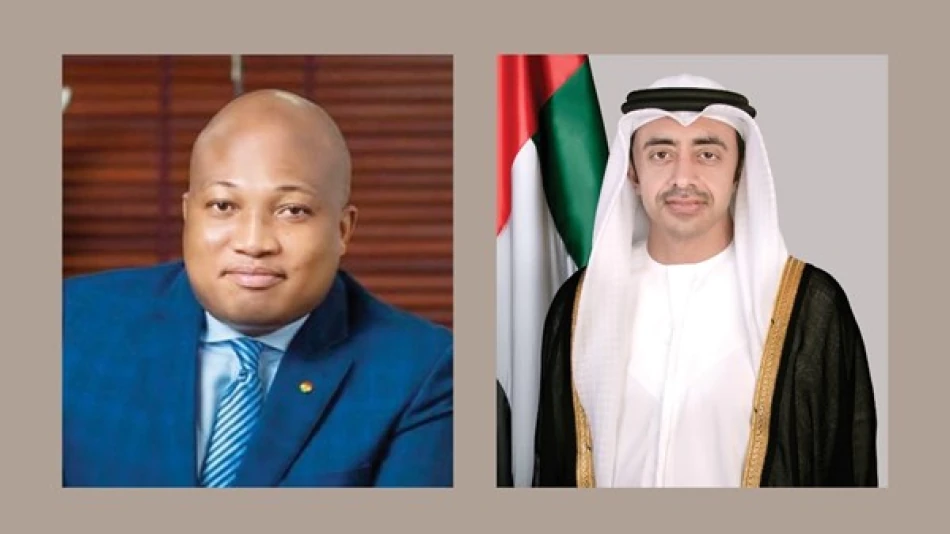
UAE FM Offers Condolences to Ghanaian Counterpart Over Military Helicopter Crash Victims
UAE Offers Condolences Following Tragic Military Helicopter Crash That Claims Ghana's Top Ministers
The United Arab Emirates has extended formal condolences to Ghana following a devastating military helicopter crash in the Ashanti region that killed several high-ranking government officials, including the country's Defense, Environment, and Science and Technology ministers. The tragedy represents one of the most significant losses of senior leadership Ghana has experienced in recent years, potentially disrupting key government operations across multiple critical sectors.
High-Level Diplomatic Response
Sheikh Abdullah bin Zayed Al Nahyan, UAE's Deputy Prime Minister and Minister of Foreign Affairs, personally contacted his Ghanaian counterpart Samuel Okudzeto Ablakwa via telephone to express the Emirates' sincere condolences and solidarity. The direct communication between foreign ministers underscores the growing diplomatic ties between the UAE and Ghana, reflecting broader Middle Eastern engagement with West African nations.
Strategic Implications of the Loss
Defense and Security Vacuum
The death of Ghana's Defense Minister creates an immediate leadership gap in a country already grappling with regional security challenges. Ghana serves as a relatively stable anchor in West Africa's volatile Sahel region, where jihadist groups have expanded their influence across neighboring Mali, Burkina Faso, and Niger. The timing could not be worse, as Ghana's military plays a crucial role in regional peacekeeping operations and counter-terrorism efforts.
Environmental and Technology Setbacks
Losing both the Environment and Science and Technology ministers simultaneously threatens Ghana's ambitious development agenda. The country has been positioning itself as a regional hub for renewable energy and digital innovation, with significant Chinese and European investments in solar projects and tech infrastructure. These portfolios will now require urgent interim leadership to maintain momentum on critical climate adaptation and digitalization initiatives.
Regional and International Context
The UAE's swift diplomatic response reflects its expanding influence across Africa, where Emirati investments in ports, agriculture, and energy have grown substantially over the past decade. Ghana represents a key partner in the UAE's Africa strategy, particularly in gold trading and agricultural exports. The relationship has deepened since Ghana began exploring economic diversification away from traditional cocoa exports.
This tragedy echoes similar incidents that have disrupted African governments, including the 2019 helicopter crash that killed Ivory Coast's Prime Minister Amadou Gon Coulibaly, demonstrating the vulnerability of senior officials who frequently travel by aircraft across the continent's challenging terrain.
Looking Ahead
President Nana Akufo-Addo now faces the urgent task of appointing replacements while maintaining government stability ahead of Ghana's upcoming electoral cycle. The international community, led by partners like the UAE, will likely increase diplomatic engagement to ensure continuity in regional security cooperation and economic partnerships. For Ghana's opposition parties, this presents both an opportunity to critique government aviation safety protocols and a moment requiring national unity in the face of tragedy.
Most Viewed News

 Layla Al Mansoori
Layla Al Mansoori






